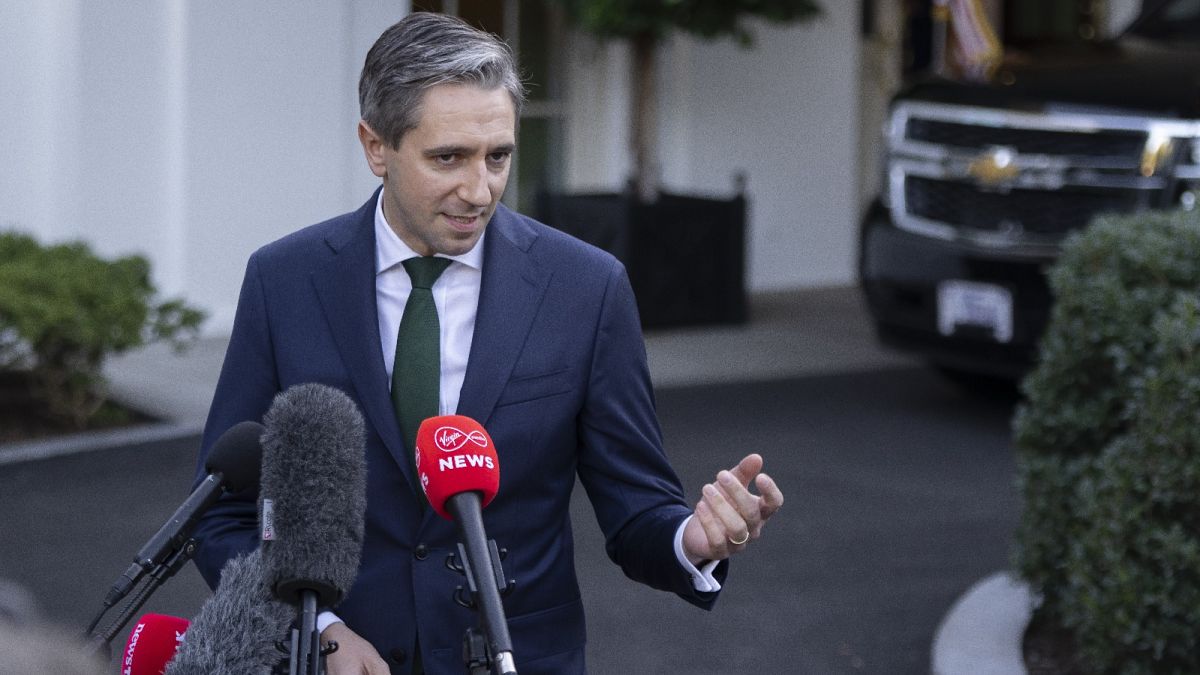Ireland is among EU member states that have been calling for the EU and Israel to hold an Association Council over human right concerns in Gaza.
Taoiseach Simon Harris said on Wednesday that Ireland “will not wait” for a European Union decision and start the process to unilaterally suspend trade with Israel on products originating from the occupied West Bank within weeks.
“Ireland now, in the context of the ICJ [International Court of Justice] advisory opinion of July, will not wait for everybody in Europe to move on the issue of trade in the occupied Palestinian territories,” Harris told reporters in Brussels ahead of a summit of the EU-Gulf Cooperation Council.
The country’s Attorney General is set to issue its own formal advice on the topic “next week” that will outline what the country “may be able to do,” Harris added.
“We want to see if it is now possible to move ahead in terms of trade restrictions, in terms of the occupied Palestinian territories, in light of the obligation that the ICJ Advisory Opinion places on all of us to do everything we can to end what is an illegal and unlawful occupation,” he also said.
The Irish government hopes it may be able to table for a vote the Occupied Territories Bill that was first introduced in 2018 but was then deemed contrary to European Union trade law by the country’s Attorney General.
The expectation is that the ICJ advisory opinion provides the bill with the required legal ground.
Europe ‘ not using every lever at its disposal’
Dublin’s decision comes as a call from the EU to hold an Association Council with Israel to discuss the country’s compliance with its human rights over its military intervention in Gaza remains unanswered five months after the bloc formally issued it.
The EU-Israel trade deal – also known as the Association Agreement – allows for trade restrictions to be reimposed if human rights are violated. But Israel has objected to an ad-hoc meeting to discuss human rights and instead suggested a regular meeting to review the trade deal as a whole could be convened in the second half of the year.
Josep Borrell, the EU’s outgoing High Representative for Foreign Affairs, however conceded on Monday that it seems unlikely such a meeting will be held before mid-November. He is scheduled to step down in early December.
A high-ranking EU official, speaking of condition of anonimity, had said last week that the bloc has “proposed a draft agenda” and is “still negotiating (it) with Israel”.
Brussels has for now slapped sanctions on a handful of Israeli settlers responsible for attacks on Palestinian communities in the West Bank and East Jerusalem. Borrell has proposed also imposing sanctions on two Israeli ministers.
For Harris, who will also attend a summit of EU leaders on Thursday, the bloc’s failure to hold the meeting with Israel shows “Europe has not yet used every lever at its disposal” to “bring about a ceasefire in Gaza”.
“It is entirely appropriate that the EU-Israel Association Agreement would be reviewed. That is not yet the majority position of the European Union. I would be making that point that we should review that agreement,” he said.
Spanish Prime Minister Pedro Sanchez also reiterated a call this week for the European Commission to “respond once and for all” to the formal request Madrid issued with Dublin “to suspend the Association Agreement with Israel if it is found, as everything suggests, that human rights are being violated.”
Sanchez, like French President Emmanuel Macron, has backed halting sales of weapons to Israel until a ceasefire is achieved, a position Israel has harshy criticised.

